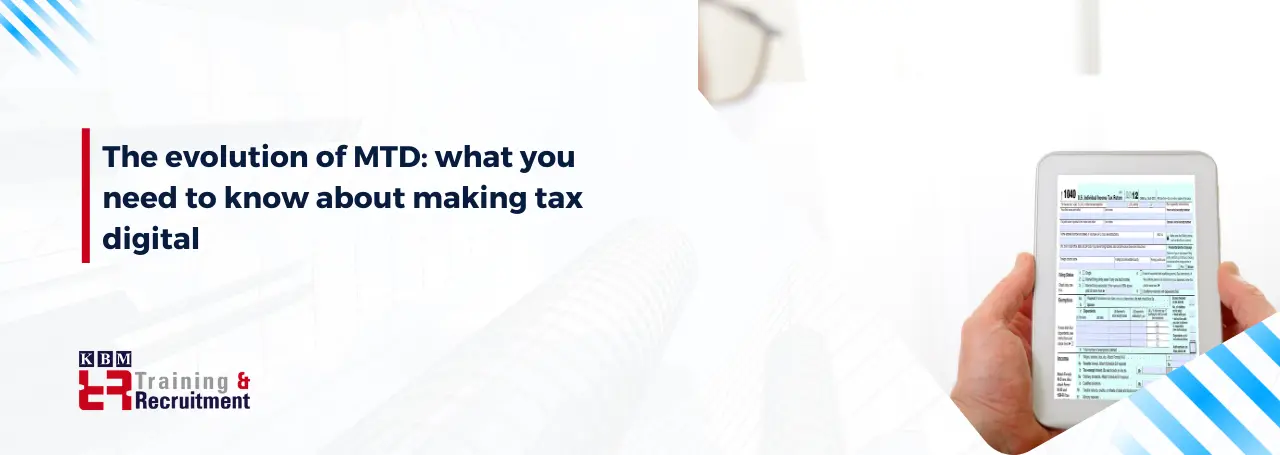Making Tax Digital is a revolutionary policy shift toward modernising the UK's system of taxation. In its intent to promote greater precision and speed, MTD encourages the use of digital tools to report taxes. Here's a look at how it came about and what it means to you.
What is Making Tax Digital?
Making Tax Digital is a governmental initiative that aims to revolutionise how people manage their taxes by introducing digital technology into the tax system. The objective is to make the process of taxation more efficient, reduce mistakes, and make reporting simpler. It means businesses and individuals can no longer keep paper records or send in paper returns; they must instead maintain records digitally and report information on taxes due to HMRC.
History of MTD
MTD was developed to help eliminate the inefficiencies and inaccuracies attached to traditional tax administration. This process started with digital reporting obligations for VAT-registered businesses. Indeed, the first phase was set to begin in April 2019 to make them maintain digital records and send their VAT returns electronically. The rest of the program covered other taxes to include in the portfolio expansion, such as income tax and corporation tax, in order to eventually cover all tax submissions in the future.
Stages of Key MTD implementation
MTD roll-out has been on stages. First was MTD for VAT, which mandated registered enterprises for VAT whose turnover was above the VAT threshold to maintain their tax records digitally and make submission of returns in electronic format. This started in April 2019. The second phase extended MTD to cover income tax and started in April 2024. The phase also requires those self-employed and landlords who receive income above the level set to maintain records in a digital format and to submit quarterly updates. The next phase is the extension of MTD to include companies in its corporation tax; however, a definite time scale has not yet been confirmed for this phase.
How MTD applies to businesses
Under MTD, businesses have to use digital tools in organising financial transactions and submitting taxes. This involves compatible accounting software that connects directly to HMRC systems. It requires recording all income and expenses digitally and using the software to submit the tax information. The whole idea is to drive more accuracy, efficiency, and compliance into the process.
Benefits of MTD
MTD comes with its set of benefits. It cuts down on the errors in tax reporting because digital tools automate data entry and calculations. They increase efficiency as it makes record-keeping and reporting faster. In addition, MTD improves compliance since it ensures that taxes are updated to their current state and correct; it leads to better financial management as it provides real-time insight and updates.
Challenges and considerations
Although it has a range of benefits, the adoption of MTD is also associated with a few challenges. The typical initial costs for a business may include suitable software and resources for the training of staff. Security for online recording is imperative. Protection of digital records is equally very important in ensuring compliance with regulations on data protection and protection of sensitive information.
The businesses should, in preparation for MTD, buy or upgrade their accounting software to software that is compatible with MTD and links to HMRC's software. Businesses should update and modernise their record-keeping approach so all of their financial data is stored in digital form and the records are up to date and clear. Training of employees must also be carried out on the new software and MTD requirements to support facilitate an easy transition. Keeping track so as to be aware of changes in policies and deadlines relating to MTD is important towards meeting its requirements.
Conclusion
Tax Digitalisation represents one of the most significant changes in the way that taxes are handled. Understand the evolution of MTD and be prepared for what it requires-it's the best path towards seamless and smooth adaptation of digital tax reporting for your business. By embracing MTD, you will sooner or later be guaranteed efficiency, accuracy, and better financial management in benefit of your business.






















